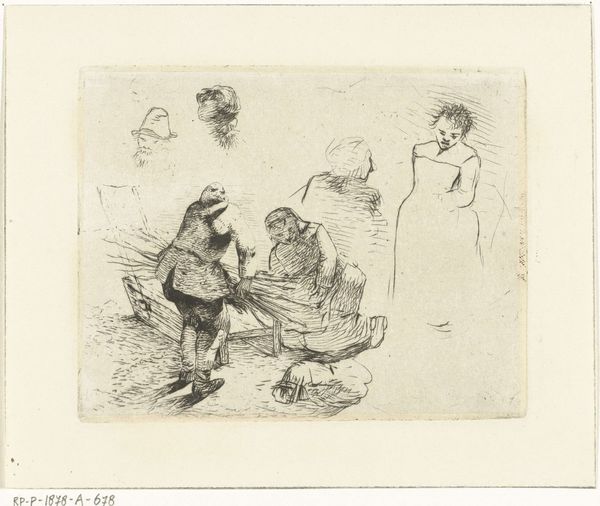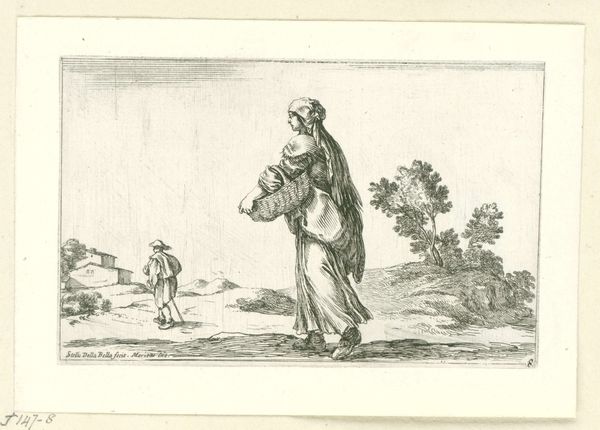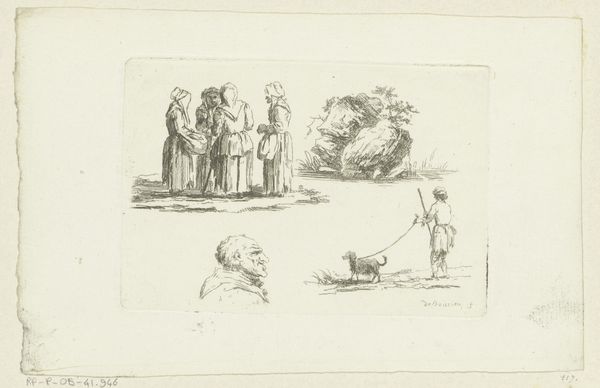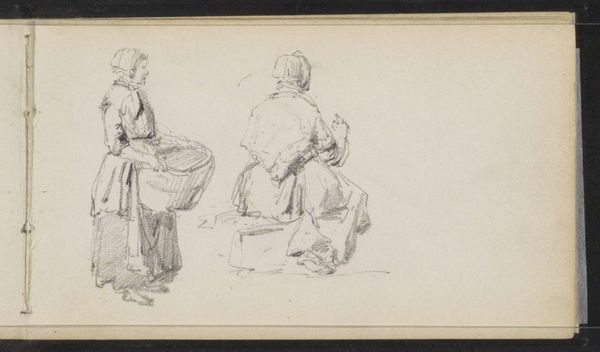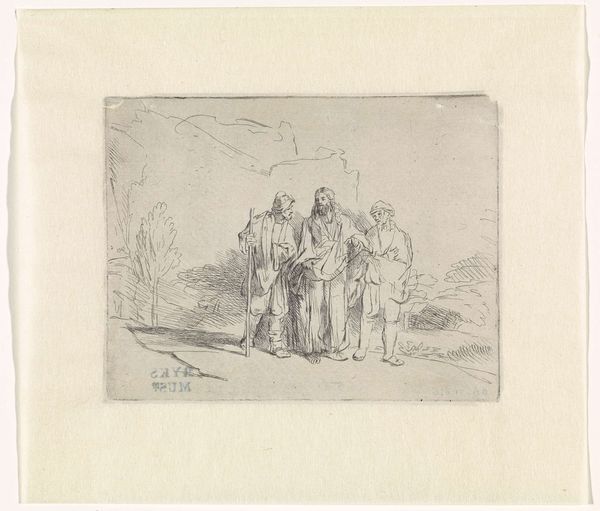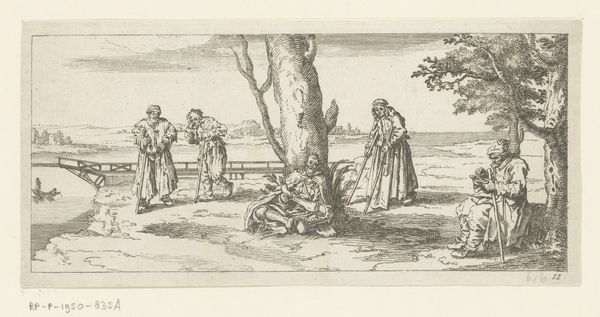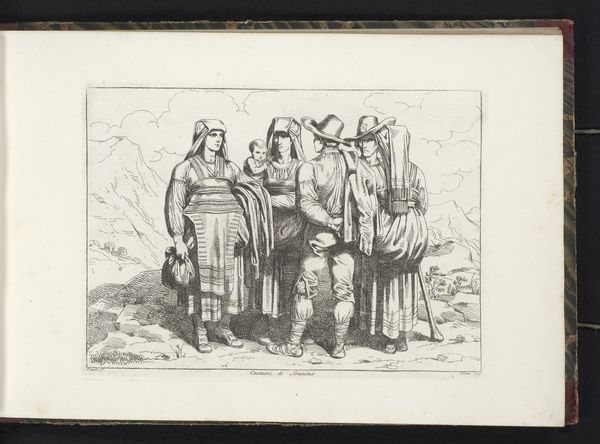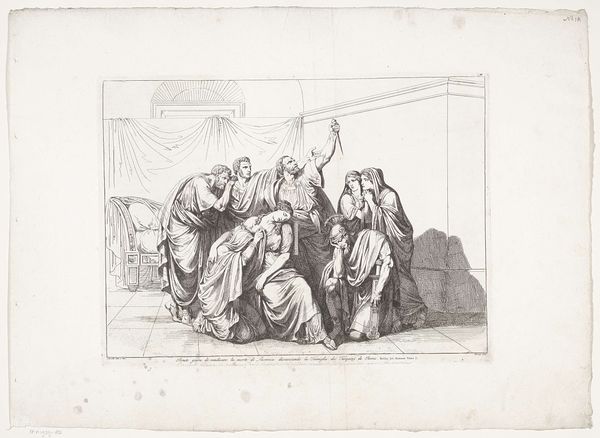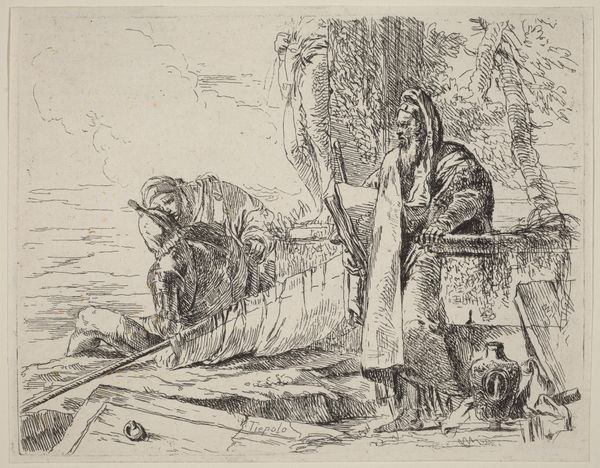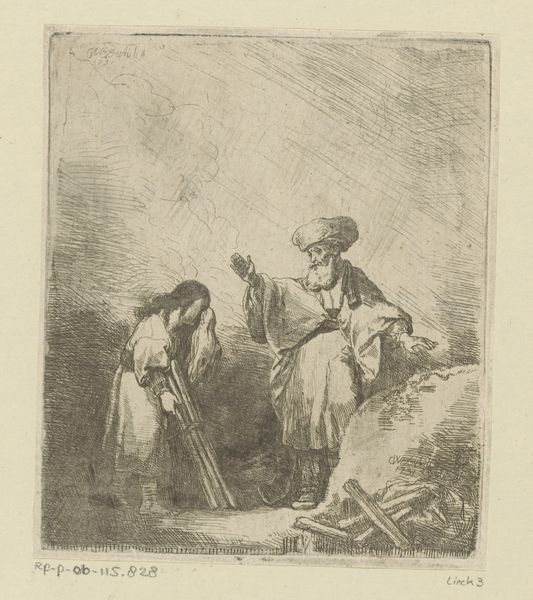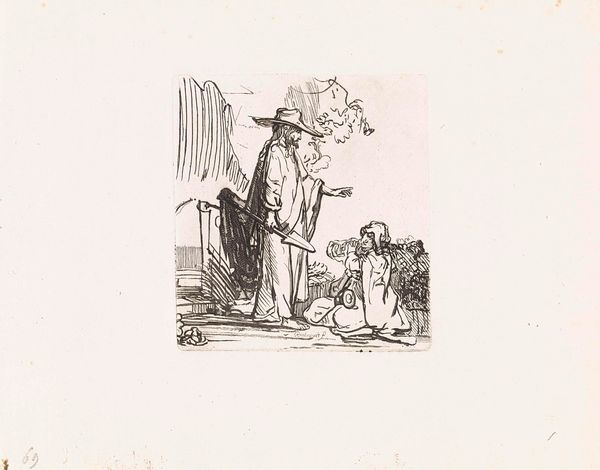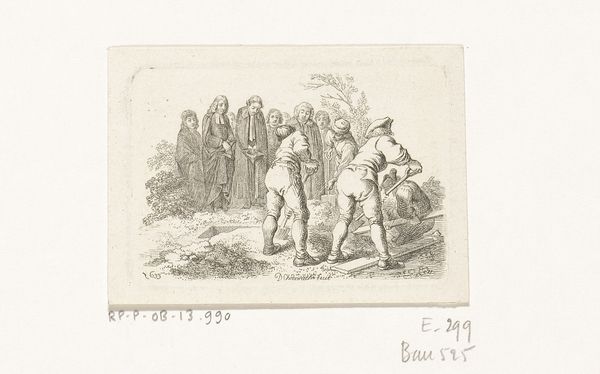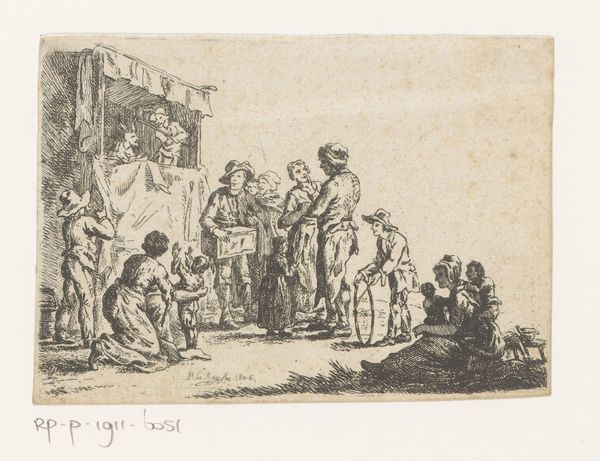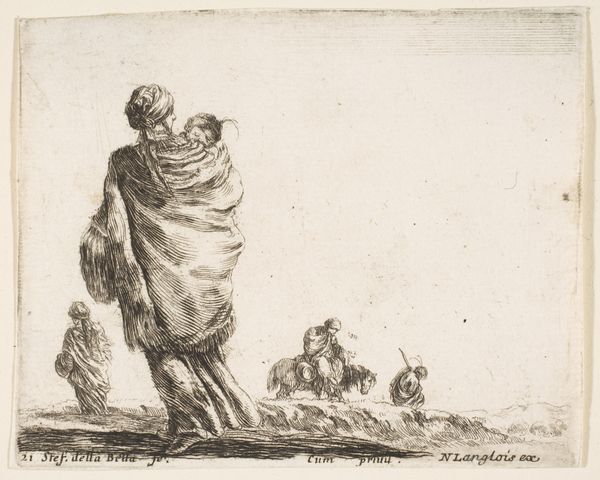
Compositie met twee mannen bij een ton en een gezeten jongeman op de rug gezien 1758
0:00
0:00
drawing, etching, paper, pen
#
portrait
#
drawing
#
light pencil work
#
etching
#
pencil sketch
#
landscape
#
paper
#
pen-ink sketch
#
15_18th-century
#
pen
#
genre-painting
#
rococo
Dimensions: height 97 mm, width 142 mm
Copyright: Rijks Museum: Open Domain
Jean Jacques de Boissieu made this print using etching, a process in which a metal plate is coated with a waxy, acid-resistant substance called a 'ground'. The artist then scratches an image into the ground, exposing the metal. When the plate is immersed in acid, the exposed lines are eaten away, creating grooves. These grooves hold ink, which is then transferred to paper to create the print. In "Compositie met twee mannen bij een ton en een gezeten jongeman op de rug gezien", the etched lines give a sense of spontaneity, as if rapidly sketched from life. But don't be fooled: etching is actually a very deliberate process. The artist has to plan out the image in advance, and carefully control the amount of time the plate spends in the acid bath. The print speaks to the wider social context through its depiction of everyday life. It's a reminder that art doesn't have to be grand or monumental to be meaningful. Sometimes, the most profound statements are made through simple observations of the world around us.
Comments
No comments
Be the first to comment and join the conversation on the ultimate creative platform.
